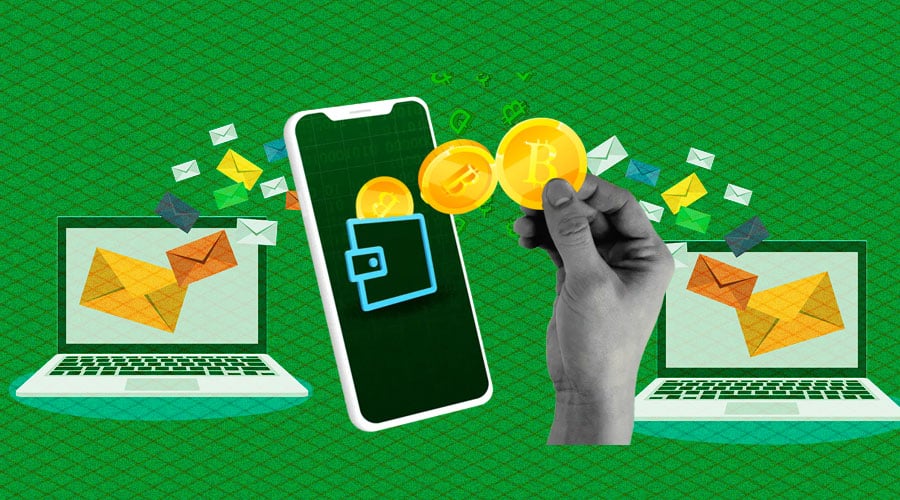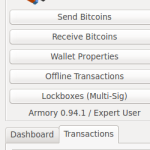How to Secure Your Crypto Wallet: Unbreakable Strategies for Digital Wealth Safety
Cracking the code on how to secure your crypto wallet isn’t just smart; it’s a must. I know the ropes and I’m here to hoist you to safety. Let’s dive headlong into unshakable strategies that stand between your digital stash and the sticky fingers lurking in the virtual shadows. I’ll show you how to nail down your wallet setup, shield your precious keys, and sidestep the sneakiest threats. With my lead, you’re on the path to being a crypto fort knox.
Understanding the Basics of Cryptocurrency Wallet Security
The Significance of Secure Wallet Setup
To keep your crypto safe, start with a secure wallet. When you set up your wallet, imagine you’re locking up a fortune in a safe. You wouldn’t leave it wide open, right? So, pick a wallet known for safety. Check its track record. Think of it as choosing a bank.
Now, protect your wallet with a strong password. Make it like a secret code only you can crack. Mix letters, numbers, and symbols. Avoid words and dates that are easy to guess. Your birthday is not a good password.
What about logging in? Here’s where two-factor authentication (2FA) comes in. It’s like a double lock on your door. Always turn on 2FA for your wallet. It uses something you have and something you know to let you in. Without both, the door stays shut.
Lastly, keep your wallet’s software up to date. Think of updates as safety checks. They fix security holes. They keep your wallet tough against hackers. It’s like fixing a fence so no one sneaks in.
Private Key Safeguarding Essentials
Your private key is a secret tool for accessing your crypto. Is it safe? It better be. If someone gets it, they can take your crypto. They can sneak into your digital safe.
How do you keep this key safe? First, never share it. It’s your secret. Second, store it somewhere offline. Think of it as burying treasure. This could be on a piece of paper or a hardware wallet. A hardware wallet is a special device for storing keys offline. It’s like a safe deposit box.
Have you heard of cold storage? It’s for keeping keys really safe. Cold storage means your key isn’t on a computer or phone. It’s out of reach from online thieves.
And what if you forget your key? Here’s where a backup seed phrase helps. Think of it as a map to your treasure. It’s a list of words that can recover your wallet. Write it down. Keep it in a secret place.
Security doesn’t stop here, though. You’ll need to dodge scams and watch out for tricks. Hackers use fake offers to trap you. And check who you’re dealing with. Some might try to switch your phone number to hijack your wallet. It’s called SIM swap fraud.
Staying safe also means doing things right each day. Don’t make deals on public Wi-Fi. Anyone could be watching. And keep your wallet address to yourself. It’s like not giving out your home address to strangers.
Set up wisely. Pick strong locks. Hide your keys well. These are the basics of guarding your digital gold. It’s about making it so tough to break in, no one will try. And if they do, they won’t get in.
Advanced Protective Measures for Your Crypto Assets
Implementing Multi-Signature Protocols
Want fail-safe security for your crypto? Try multi-signature protection. Multiple keys are needed to access funds. This blocks single-point failures, and access requires consent from all key holders. It’s teamwork in your wallet.
This approach echoes safety deposit boxes. You need a few keys, not just one. It’s a perfect fit for teams holding digital assets. You can’t have too much teamwork when it’s about protecting cryptocurrency funds.
Imagine shared responsibility. You, your trusted partner, and a backup. All of you must agree to spend funds. It’s a fail-safe when one is hacked. The funds stay locked. Your digital wealth remains secure.
Harnessing Cryptosystem Encryption
Encryption is your silent guardian. It turns readable data into complex codes. To decode, you need a secret key. Without it, the data is gibberish. Encryption defends against prying eyes. Using a trusted wallet app supports this.
Your private keys are your crypto lifeline. Lose them, and you lose your assets. Safeguarding them with cryptosystem encryption is vital. Consider a hardware wallet for an extra layer of defense.
A hardware wallet physically secures your private key. It’s a vault in your pocket. It keeps your private keys offline. Out of reach from online hackers. It’s cold storage, a fortress for digital wallet security measures.
Remember back up seed phrases — your recovery blueprint. Write them down. Store them like treasure. They are your last line of defense. Secure wallet setup starts with noting these down safely.
To some, this might sound like a spy thriller—codes, keys, vaults. But when it’s about your digital wealth, such flank safety measures are necessary. Investments in security now can prevent heartaches later.
Don’t let malware threats on crypto scare you. Just keep your software updated. It seals cracks that hackers might slip through. And avoid tempting, suspicious crypto offers. If it’s too good to be true, it probably is.
By shunning public Wi-Fi for transactions, you avoid easy traps. Home networks are safer, harder for thieves to breach. With mobile wallet defense and smart choices, your crypto can dodge most digital perils.
In conclusion, think of crypto asset protection like guarding a castle. It’s about strong walls (encryption), multiple gates (multi-signature), and vigilant watchmen (software updates). Making these part of your routine shields your digital kingdom. Keep your crypto fort secure and your mind at ease, knowing your digital wealth is in “unbreakable” hands.
Staying Ahead of Digital Threats to Your Cryptocurrency
Guarding Against Phishing and Malware
Keep your crypto safe by watching out for crooks trying to trick you. They might send fake emails or links to steal your info. Don’t click unknown links or share key details. Always check if the source is legit before you click. This smart habit can save you from big trouble.
Phishing is when crooks try to get your wallet info through fake stuff. Avoid huge losses by learning how to spot these tricks. Look for weird email addresses or messages that don’t seem right. If you’re unsure, reach out to the company directly using trusted contacts.
Malware is nasty software that aims to sneak into your device. It tries to grab your data or control your crypto without you knowing. Protect your devices by using antivirus tools. These programs can find and get rid of malware before it harms you.
By keeping an eye out and using good sense, you dodge many dangers. A mix of awareness and technical tools offers the best shield. Your crypto stays secure, and you can rest easy.
Regular Software Updates and Mobile Wallet Defense Strategies
Do you hear about updates and hit “later” all the time? Don’t do that with your crypto wallet software. These updates often have important fixes to keep your wallet safe. Hackers love old software because it’s easier to break into. Stay ahead by always updating to the latest version.
Your phone is a handy way to get to your crypto, but it needs guarding, too. Use strong passwords and think about fingerprints or face locks if your phone has them. This adds an extra layer no one can copy. If your phone gets lost or stolen, your crypto stays locked away.
Make sure your wallet app is from a source you can trust. Some apps in stores could be fakes looking to fool you. Before downloading, research to make sure you pick a secure one. Reading reviews and checking ratings can guide you well.
Setting up your defense against cyber baddies is key. Keep your software up-to-date, use powerful locks on your phone, and choose apps with care. These steps aren’t too hard but can make all the difference in protecting your digital gold.
Best Practices in Crypto Wallet Recovery and Regulatory Compliance
Meticulous Wallet Recovery Planning
Losing access to your wallet can seem like the end. But it’s not! Plan well, and you’ll always bounce back. Rule one: back up your seed phrases. These 12 to 24 words are a lifeline to your funds.
What’s a seed phrase? It’s a key to your wealth, so keep it safe! Don’t store it on your computer. Write it down on paper. Better yet, put it in a safe or deposit box. Tell someone you trust or keep it to just you. But remember, that’s your backup. Without it, your digital gold could be gone for good. Always use a strong password, too. Make it long and complex. But make sure you will remember it.
For extra peace, add two-factor authentication to your wallet. That way, even if someone has your password, they still can’t get in. Hardware wallets offer another level. They keep your keys offline, away from internet thieves.
Importance of Regulatory Compliance Verification and Transaction Monitoring
Stay on the right side of the law. Always check if your wallet follows legal rules. Why? It’s simple. Compliance helps fight fraud and protects your money.
Now, what does it mean to be compliant? It means checking ID (know your customer, or KYC). It also means watching out for sneaky activity. Wallets that follow these rules are less likely to scam you. They work to keep you safe. See if your wallet uses SSL encryption too. That means your connection is private when you access your wallet online.
Monitoring your transactions is key. Keep an eye on every move. Odd things happening? Act fast. It could be an attacker. Tools and alerts help with this. They warn you if something seems wrong.
In summary, a sharp recovery plan and obeying the law are solid steps. They lock down your crypto, keeping it just for you.
We’ve covered key steps to keep your digital money safe. First, setting up your wallet the right way matters. Keep your private keys safe—like secret codes that protect your cash. Next, we talked about extra shields, like multi-signatures and strong codes that only you know. They keep thieves out.
We also looked at how to stay sharp against scams and bad software. Keep everything up to date and know how to guard your mobile wallet. Avoid traps set by crooks. Lastly, have a plan if things go wrong and follow the rules to track your money.
Remember, in the crypto world, staying safe is on you. Use what you’ve learned and keep your treasure secure. It’s like a fortress for your digital dollars. Stay smart, stay safe! Follow Crypto Market Pulse to update more knowledge about Crypto.
Q&A :
What are the best practices for securing a cryptocurrency wallet?
Ensuring the security of your cryptocurrency wallet is paramount to safeguard your digital assets effectively. To optimize security, consider multilayered strategies such as utilizing strong, unique passwords for wallet access and keeping those passwords stored safely offline. Enable two-factor authentication (2FA) whenever available, select wallets with a robust reputation for security, and regularly update your software to patch any vulnerabilities. Further, consider using hardware wallets for storing large amounts of cryptocurrency as they provide an extra layer of protection by keeping private keys offline.
How can I protect my crypto wallet from hackers?
To fend off hackers, always use wallets that encrypt your private key, giving an additional security layer. Enable all security features provided by your wallet, such as biometric authentication or multi-signature options. Stay vigilant against phishing attacks by double-checking URLs and email senders before clicking on links or attachments. Keep your devices secure with updated antivirus and firewall software, and only use secure, private Wi-Fi connections when accessing your wallet.
What should I do if my crypto wallet is compromised?
If you suspect that your crypto wallet has been compromised, act swiftly to protect your assets. First, transfer your remaining funds to a new, secure wallet. Immediately change all related passwords and review your computer for any malware. Report the theft to your wallet provider and, if necessary, to law enforcement. Keep records of all transactions and communication for reference. Lastly, analyze how the breach occurred to prevent future vulnerabilities.
Can using a hardware wallet increase the security of my crypto assets?
Yes, using a hardware wallet can significantly increase the security of your cryptocurrency. Hardware wallets store your private keys offline on a physical device, making it immune to online hacking attempts. They often require physical confirmation of transactions, adding an additional hurdle for any would-be attacker. Even if connected to a compromised computer, the offline nature of these devices keeps your private keys secure.
What are the differences between hot wallets and cold wallets?
Hot wallets are connected to the internet and provide convenience for frequent transactions, but they can be more vulnerable to online attacks. Cold wallets, in contrast, store cryptocurrencies offline, greatly reducing the risks associated with hacking. Cold wallets come in the form of paper wallets or hardware devices and are best for long-term storage of large amounts of cryptocurrency. The main trade-off between hot and cold wallets is convenience versus security, with hot wallets favoring the former and cold wallets the latter.





